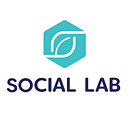Rise of Reuse
Reusable product adoption is becoming more than a trend in an era where environmental awareness is taking centre stage; it is becoming a movement. People and businesses alike are realising the urgent need to transition to sustainable alternatives as concerns about single-use plastics, pollution, and resource depletion grow. Reusable products are becoming increasingly common, which is proof of our society’s commitment to protecting the environment for future generations.
Research shows that in 2018, 360 million metric tonnes of plastic were produced worldwide, of which 40% were used for packaging. Plastic is one of the most widely used materials in the packaging industry, where it appears to be irreplaceable. We cannot overlook the problems plastic has created for the environment, nor can we rely only on recycling to fix them. Reusable packaging is one of the best methods to replace single-use plastics, so we must develop and promote alternative solutions.
Environmental Advantages:
A company’s carbon footprint can be significantly reduced by using a returnable supply chain. For instance, single-use corrugated packaging will result in massive amounts of collected waste material in landfills if your organisation requires continuous product shipment between manufacturing or factory sites. Additionally, it will result in higher production energy costs. Reusable packaging reduces the need for raw materials, energy, and trash production in such circumstances. Consumer items are a major area where single-use plastic is used. Reusable packaging, such as zip-lock bags, can significantly cut down on home plastic waste.
Reducing trash:
A growing push for change has been sparked by the serious amounts of plastic trash that wind up in our oceans and landfills. By drastically lowering the use of single-use items like plastic bags, straws, and water bottles, reusable products provide a successful solution. We can all help decrease the strain on the environment by introducing reusable alternatives into our daily activities.
Cutting expenses:
Reusable packaging is economical and kind to the environment. Companies can save money on the cost of raw materials, energy, and labour by reducing the need to repeatedly produce single-use packaging. Reusable packaging is kinder to the environment than single-use packaging since it is made for repeated usage. As a result, it protects the goods from damage and reduces losses.
Economic Benefits:
While buying reusable products might cost more money, their long-term financial benefits are apparent. Purchasing high-quality, reusable alternatives can eventually cost less than buying disposable items frequently. These goods, which range from cloth shopping bags to stainless steel water bottles, can last for many years and eventually result in cost savings for people and families.
Social Lab provides circular waste management solutions fostering the transition from a linear to circular economy. We work closely with companies, municipalities, and international organizations on solid, plastic, battery, and e-waste management.
To know more About Us, visit www.social-lab.in and follow us on social media https://linktr.ee/Social_Lab
